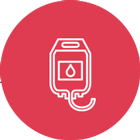After You Say Goodbye
No one wants to think about what to do when their pet dies, so we often just put off doing any research or making decisions about what to do when the time comes. Putting off end of life decisions just adds stress to an already incredibly emotional situation.
Where do you start? What are the options? The costs? Dealing with your pet’s death is inevitable and we see owners face this every day. We don’t want your first step to be googling We don’t want your first step to be googling “What to do when my dog dies?” or What to do when my cat dies?”. We want to take a moment to help sort through those questions with you and equip you to be a more educated pet owner.
Once your pet passes you have to make a decision about what to do with the body. Years ago, the norm seemed to be to bury the family dog (or cat) in the backyard. For reasons we’ll cover later on, we advise against this. SO, you may be wondering what other options there are.
First step
Even before you decide if you want to keep your pet’s remains, you are faced with a decision of what to do with your pet’s body. At JAH, as well as other animal hospitals, you may bring the body in and drop it off there to be picked up by the company doing services or you can contact the cremation company directly.
Cremation
Cremation is primarily what we recommend at Jefferson Animal Hospital and the choice that is best for the vast majority of pet owners when your pet dies. If you make the choice to cremate, there are other options to think through.
Cremation without receiving remains
Some pet owners don’t want to hold onto their pet’s ashes or body (for burial). However, the body must still be dealt with. A local company we partner with offers services to responsibly cremate the body along with others in a communal cremation and then spread the ashes (which will not be returned to owners) on a local farm.
Cremation with remains
Owners often decide they’d like to hold onto their pet’s remains. Within this choice there are a couple of options. In a private cremation, your pet will be placed into the cremation chamber by themselves. In an individual cremation, your pet will be placed into the cremation chamber with another pet. The smaller pet will be placed into a stainless steel cremation pan so that the ashes of the two pets will remain separate.
All of these options range from around one hundred to a few hundred dollars depending on which option you choose and what type of urn you choose.
Memorial Options
Remembrance Jewelry
There are businesses (mostly on etsy) who can take pet’s remains and incorporate them into a piece of jewelry. A couple minutes of google searching can point you in the right direction of a piece of jewelry to keep your pet close to your heart.
Memorial Plant
Even if your furry friend will not physically be in your backyard, you can still plant a tree, bush, or flowers to have a physical reminder of their life and the joy they brought you. When any of our client’s pets die, we include a pack of Forget Me Not seeds with the sympathy card. Having a visual reminder of your pet’s life, especially a plant, can help you deal with the grief that comes with loss.
Personalized Urn
Some owners decide not to spread their pet’s ashes anywhere and instead opt to keep their pet’s remains in a personalized urn. There are many options for this from many companies, although Faithful Companions, the company we work with does offer different personalized urns. These urns range from a plain box or vase to a wooden case with a photo frame and/or a figurine on top.
Burial
At Jefferson Animal Hospital, we advise against burying your pet in your backyard/on your property. In Jefferson County, it is illegal to do so.
If your pet was euthanized, an extremely concentrated chemical solution used for the procedure will remain toxic in the body for up to a year after death. This means if any animal scavenging for food were to smell the body and dig it up, they would likely become poisoned.
Beyond the toxic chemicals in the remains, the deceased pet’s remains could spread other disease if another animal came into contact with it or if a food or water source came into contact with the decomposing body.
Conclusion
As we said earlier, no one wants to think about their pet’s death before they have to, but it’s much better to make these kinds of decisions with an unclouded mind. If you have a plan for arrangements now, you’ll be more free to grieve properly when your pet dies and avoid additional stress that comes with arrangements after a death.
If you have questions about an aging or ill pet’s quality of life and whether or not euthanasia is best, we encourage you to read our article on the subject here and to check out our “End of Life Care & Pain Management” page.
Be kind to yourself and to your furry friend and think through your options while you still have them!






